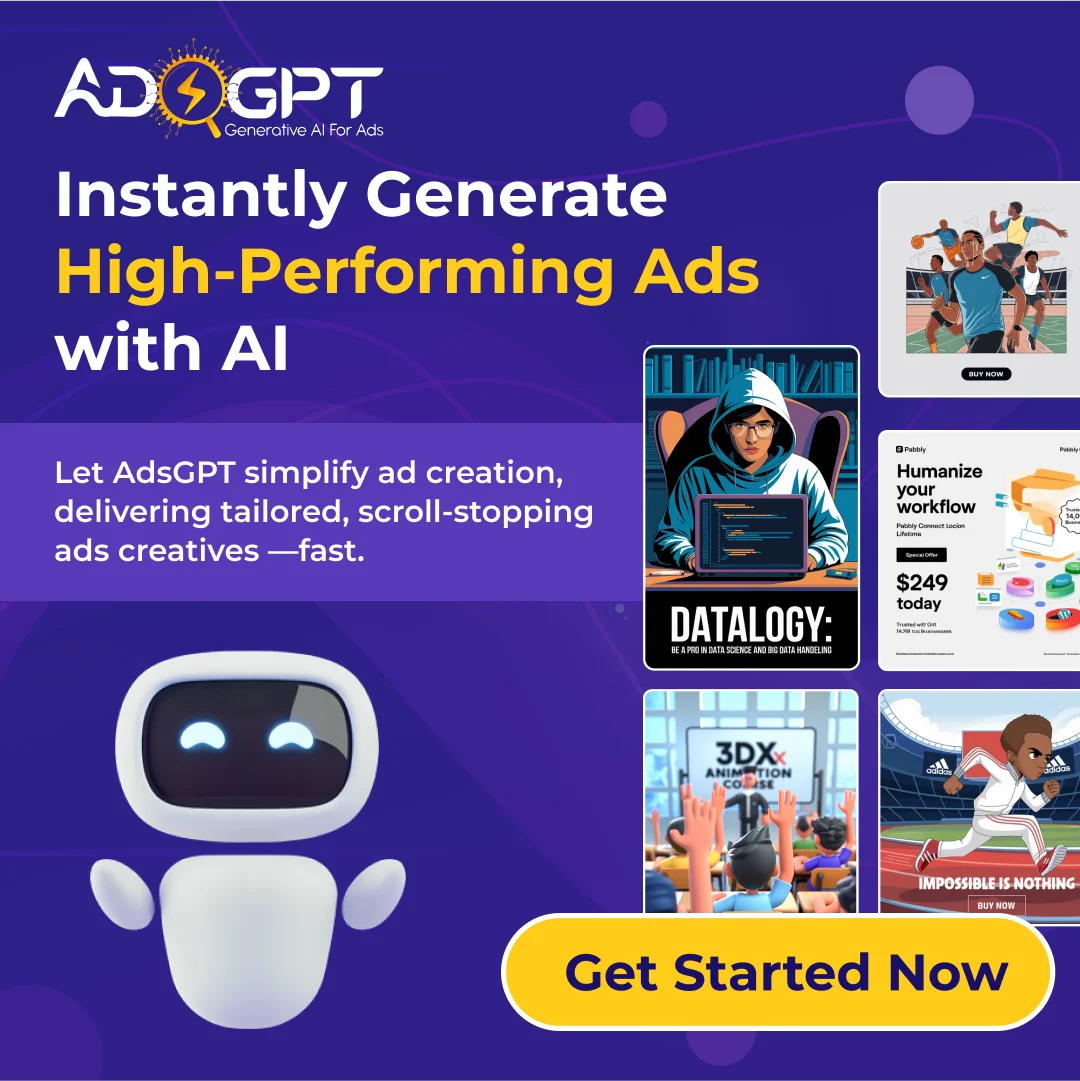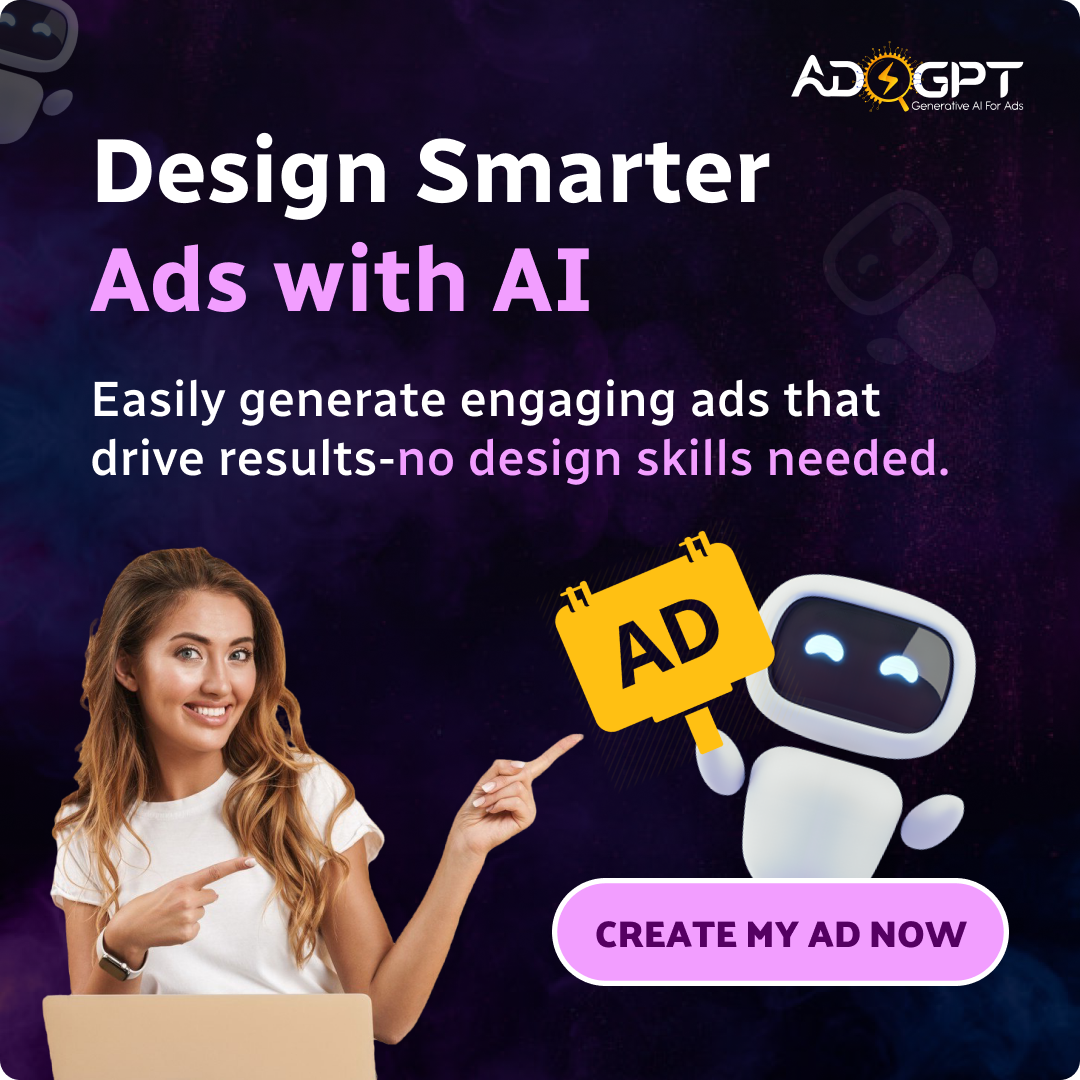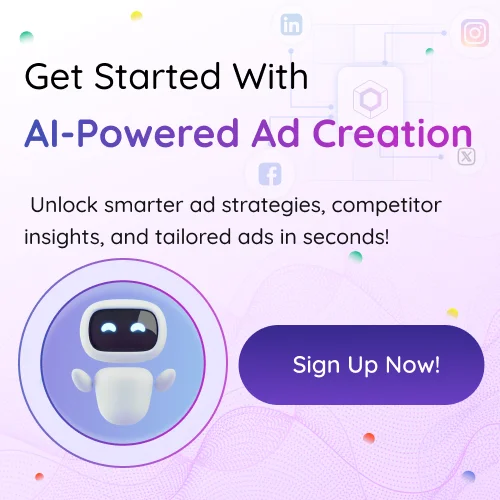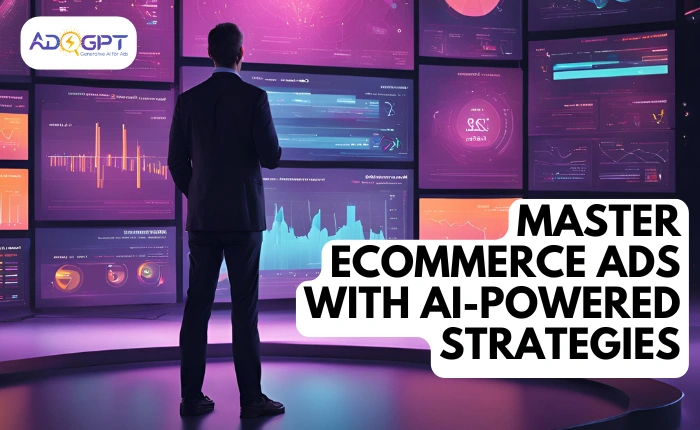
Imagine if you could predict which ad creative would deliver the best results before spending a single cent on your campaign. Sounds like a dream, right? That is the power of ecommerce ad intelligence. Using data for smarter ad decisions is not just an option—it’s essential. But how do you make the intention of endless metrics, insights, and trends? That’s where AI-driven tools come into play, revolutionizing e-commerce ads with unmatched precision and efficiency.
In this Blog, we will take a closer look at ecommerce ad intelligence, discuss the role of AI in enhancing ad creativity, and investigate how AI tools are transforming businesses. Let’s discover how to utilize these innovations to boost your ad campaigns.
What Is Ecommerce Ad Intelligence?
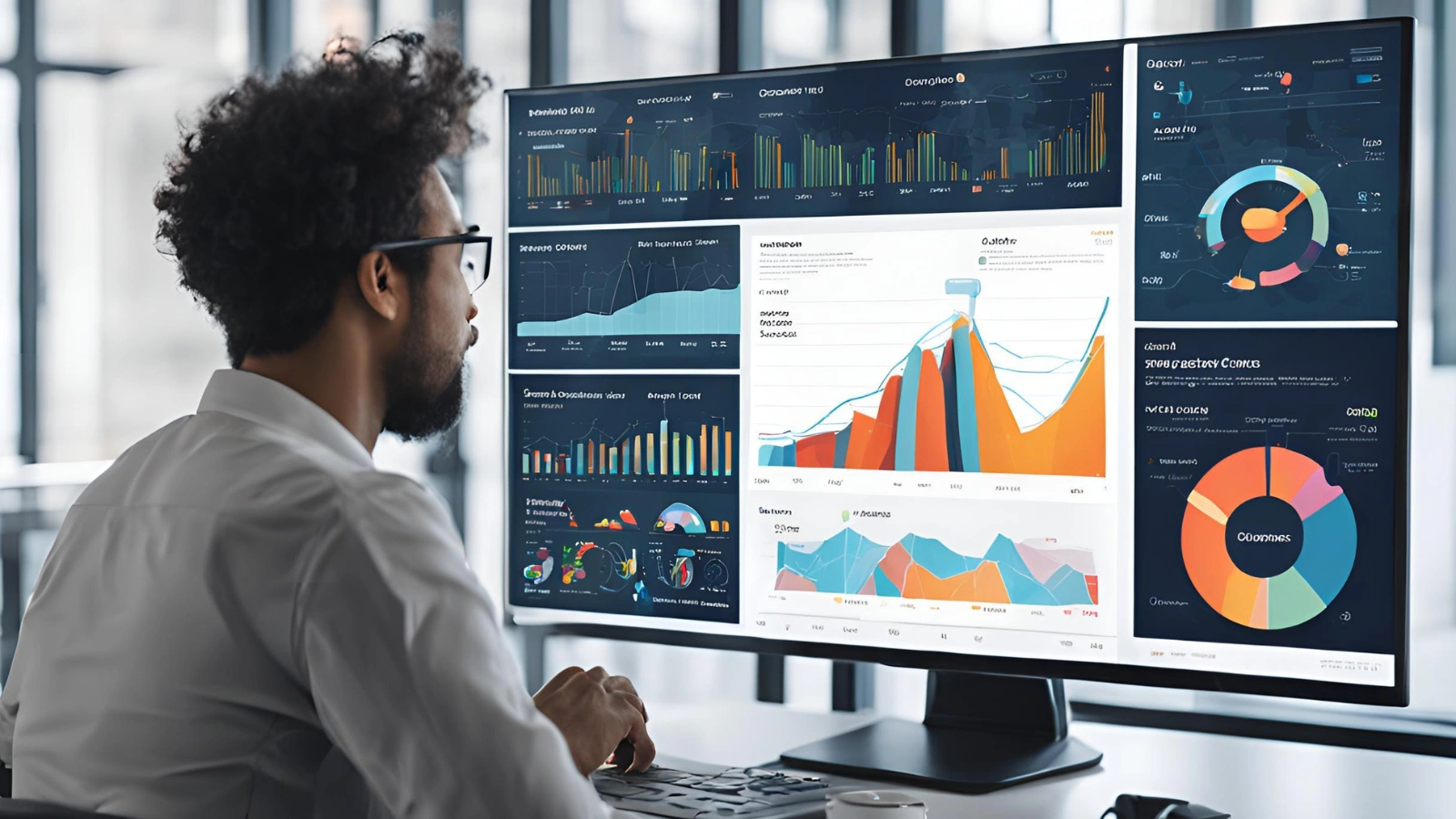
Ecommerce ad intelligence refers to the process of collecting, analyzing, and utilizing data to optimize advertising strategies in ecommerce. This concept is not just about gathering data but turning it into actionable insights that can improve campaign performance. It involves studying competitor strategies, monitoring market trends, and understanding consumer behavior to create ads that resonate with the audience. By using this information strategically, businesses can minimize guesswork and launch campaigns with a higher likelihood of success.
Launching a new product in a competitive niche comes with its challenges. Instead of blindly testing various ad creatives, you analyze what’s already working for similar products in the market. Ecommerce ad intelligence empowers you to replicate successful strategies, giving you a competitive edge while saving time and resources. It’s not just about optimizing ads but ensuring every decision is backed by data.
The Role Of AI In Ecommerce Ads
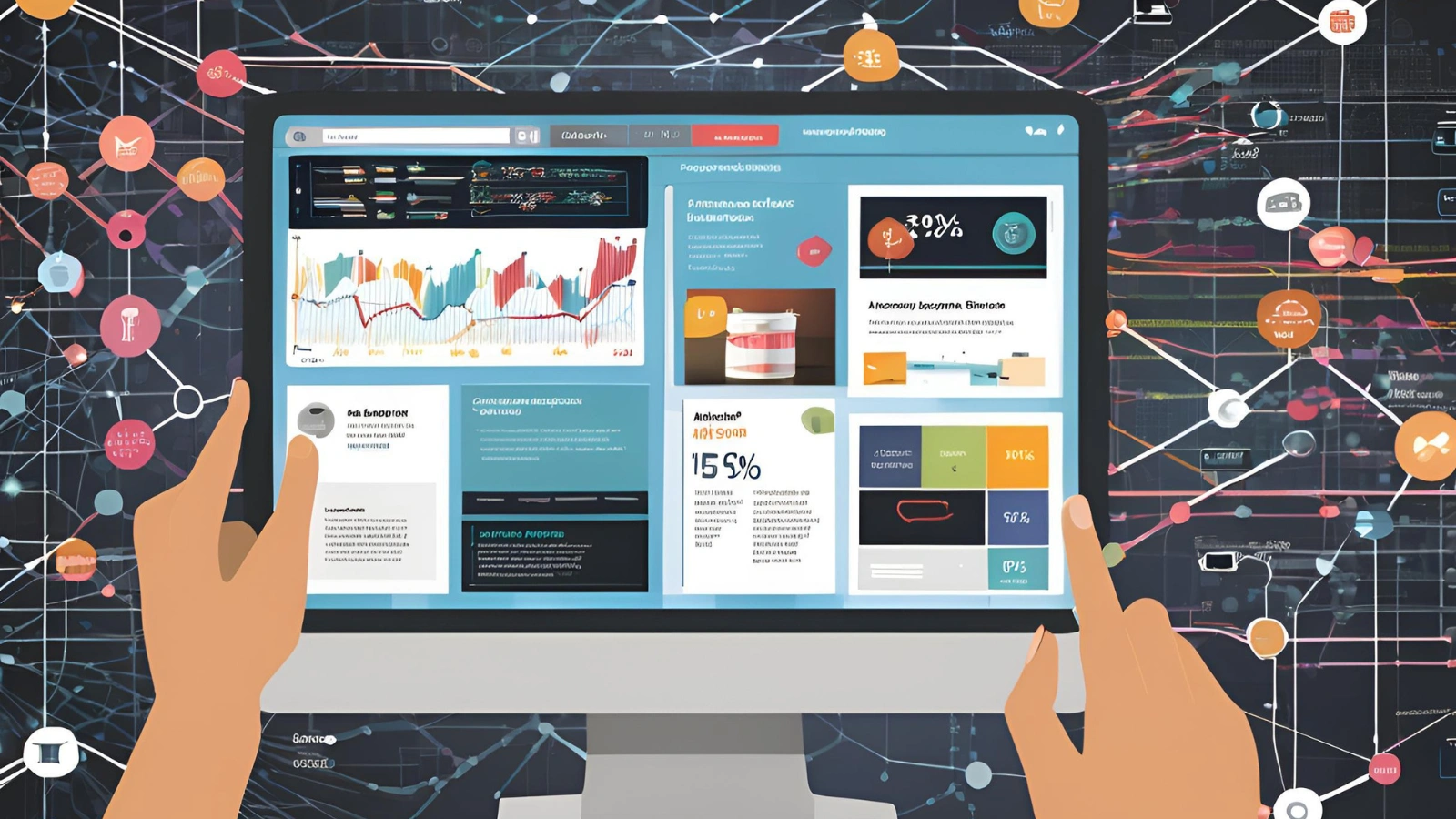
Ad intelligence tools gather data from various sources to reveal trends, patterns, and opportunities that might be overlooked by human analysis. Some key features include:
Sentiment Evaluation – Gaining insights into customer perceptions and feelings about products, brands, and competitors to guide messaging and positioning.
Competitor Analysis – Monitoring competitors’ ad creatives, campaigns, and performance to spark new ideas.
Multi-touch attribution –Determining which ad channels and campaigns are driving conversions at each stage of the customer journey through mobile ad attribution.
Analytical planning – Forecasting future performance to optimize budgets, bids, and creative assets.
Personalized audience growth – Developing tailored segments based on behaviors, demographics, location, and more to target potential buyers.
By utilizing these insights, ecommerce advertisers can improve campaign objectives, creative direction, budget allocation, and more to improve performance.
Increase Conversion Rates With Useful Information- Ecommerce ad intelligence enables data-driven optimization to boost conversion rates. Key strategies include:
Personalizing graphics – Designing customized ads for different segments using their preferred messaging.
Campaign optimization for devices – Distributing budget effectively across mobile, desktop, and tablets based on analytics.
Testing different ad versions – Conducting A/B tests on ad copy, visuals, and calls-to-action to find what resonates best.
High-intent users – Targeting individuals who have previously engaged with ads or site content.
Monitoring analytics – Keeping track of KPIs to uncover new opportunities as they arise.
By merging AI ad intelligence with strategic testing and optimization, ecommerce advertisers can make informed decisions to maximize conversions.
AI-Powered Ad Creation

The creative aspect of advertising has been transformed by AI intelligence. Previously, creating effective ad creatives required significant time and numerous rounds of brainstorming, design, and testing. Today, AI-driven tools utilize ad intelligence to streamline this process. By analyzing data, they produce customized ad copy and visuals that specifically target your audience, making sure your ads not only grab attention but also deliver measurable results.
For instance, AdsGPT can craft custom ad copy that aligns with current trends and audience preferences. It also generates visuals optimized for different demographics, making it easier to produce ads that stand out. Another advantage of AI is its ability to conduct A/B testing on a large scale. By testing multiple variations of an ad simultaneously, AI helps identify the most effective creative with minimal manual input. This means you can focus on strategy while the AI handles the creative nuances.
AdsGPT: Your Ad Intelligence
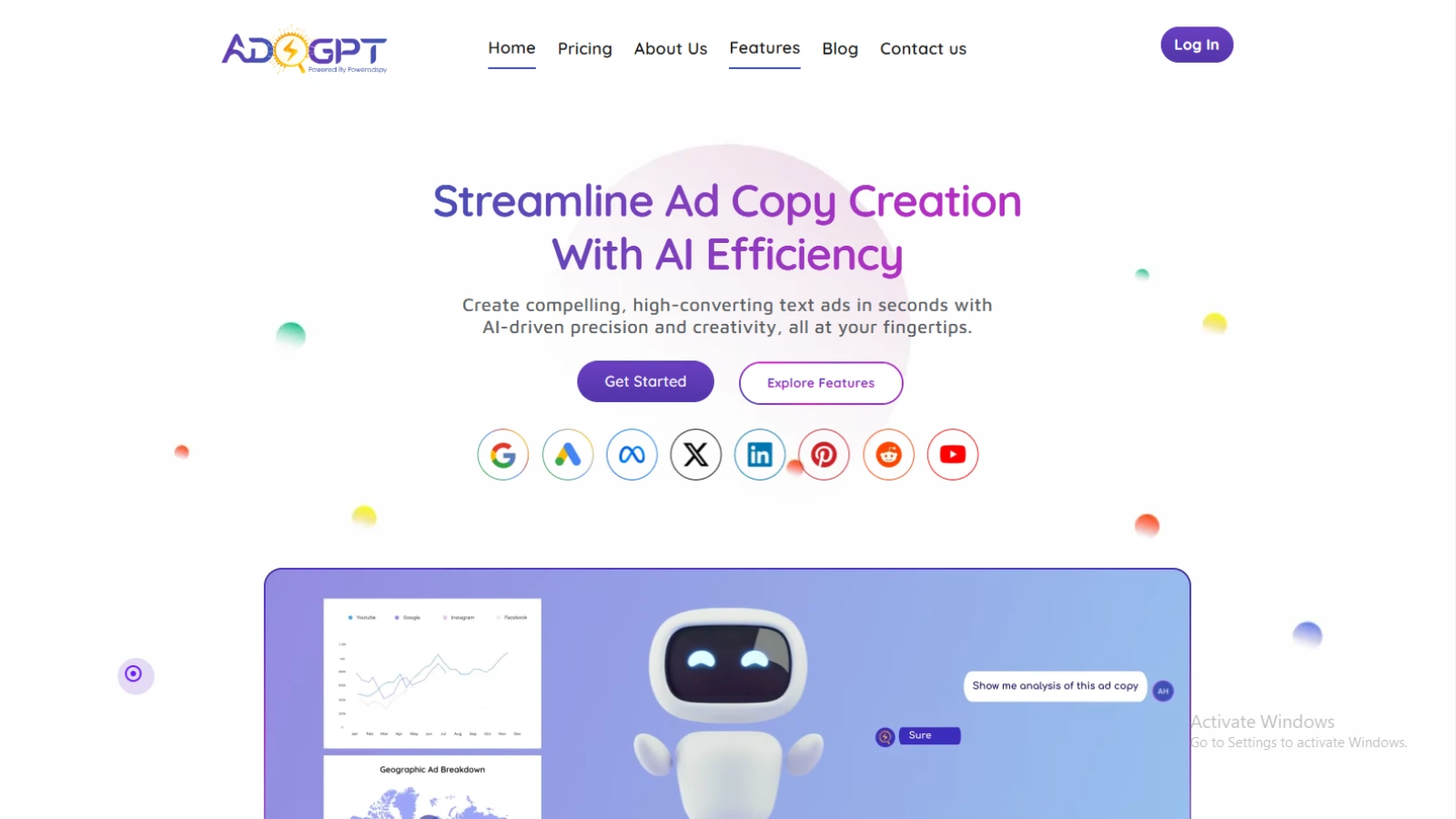
AdsGPT utilizes cutting-edge AI technology to produce high-quality, engaging, and conversion-oriented content. So, what sets AdsGPT apart? It’s more than just an AI writing tool; it’s a smart, data-driven solution tailored to match your brand’s distinct voice. With robust customization options, real-time market insights, and smooth integration across multiple platforms, AdsGPT guarantees that your sales copy is not only compelling but also highly relevant. Let’s explore some of its key features.
- Instant Ad Copy Generation – Craft high-impact ad copy for your audience in seconds, freeing you to focus on strategy.
- Platform-Specific Optimization – Fine-tune your ads to match each platform’s unique style, ensuring they resonate with your target audience.
- Competitor Ad Inspiration – Analyze top-performing competitor ads for actionable insights that spark fresh, innovative ideas.
- Creation Tracking – Monitor and manage your ad campaigns with ease, driving continuous refinement and measurable improvement.
By integrating AdsGPT into your processes, you can achieve greater efficiency and creativity in your campaigns. It’s more than just a tool; it’s a strategic ally that keeps you competitive in the market.
Benefits of AI-Driven Ecommerce Ad Intelligence

AI integration in ecommerce ad intelligence has redefined advertising, offering a host of benefits that were once out of reach for many businesses. Firstly, AI simplifies decision-making by providing clear and actionable insights. Instead of sifting through endless metrics, marketers can rely on AI to highlight the most critical information.
Secondly, AI enables higher ROI by focusing on strategies that have a proven track record of success. By analyzing past campaigns and predicting future trends, AI ensures that your ad spend is directed toward initiatives with the highest potential for returns. This eliminates much of the trial-and-error approach that often leads to wasted resources.
Thirdly, AI enhances targeting capabilities. With its ability to analyze customer behavior and preferences, AI helps businesses create highly personalized campaigns that resonate with individual users. Personalized ads are more likely to capture attention and drive engagement, leading to better overall campaign performance.
AI-driven ad intelligence helps cut costs by automating many elements of campaign management. It simplifies tasks like bid adjustments, performance tracking, and A/B testing, allowing marketers to dedicate more time to strategy and creativity.
Real-Life Applications Of AI In Ecommerce Ads

To truly understand the impact of AI-powered ad intelligence, let’s look at some real-world examples. A fashion brand utilized AdsGPT to introduce a new product line. By examining trending styles and consumer preferences, the platform crafted ad creatives that connected with their target audience. This effort led to a 30% increase in conversion rates compared to their earlier campaigns.
In another case, an electronics retailer employed ad intelligence to keep an eye on their competitors’ strategies. By pinpointing weaknesses in their rivals’ campaigns, they developed ads that successfully captured market share. This strategic move not only enhanced their visibility but also established them as a leader in their market segment.
Additionally, a skincare company took advantage of AI to design personalized ad campaigns. By customizing ads to match individual user preferences, they saw improved engagement rates and fostered stronger customer loyalty. These examples demonstrate how AI-driven ad intelligence can yield significant results across various industries.
Conclusion: Ecommerce Ad Intelligence
Intelligence for ecommerce ad content is transforming how businesses approach advertising. By using AI technology, marketers can create, optimize, and fine-tune their campaigns with unmatched accuracy. Tools like AdsGPT streamline the creative process while delivering insights that boost conversion rates and cut costs.
The real-world examples highlighted show that whether you’re launching a new product line, outsmarting competitors, or designing personalized campaigns, AI intelligence consistently delivers measurable results. As the digital landscape continues to evolve, adopting these innovative solutions is essential for staying competitive and achieving long-term success.

